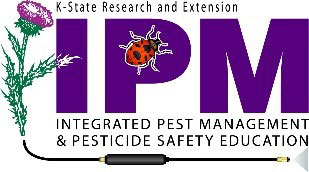This article provides answers to frequently asked questions associated with paraquat and dicamba trainings (detailed below in separate sections) in Kansas for 2021.

Paraquat
Do all paraquat dichloride product labels require the additional training?
All products featuring the new labeling with the active ingredient paraquat dichloride, such as Gramoxone®, Firestorm®, Helmquat, and Parazone® will require the additional training in order to apply these products. Remember if the new training requirement is listed on the label of the product you are using, then you MUST complete the training.
Who is required to take this training?
Any person who intends to use paraquat must be a certified applicator and is required to take this training. In addition, the new labeling requires anyone handling (mixing, loading) paraquat to complete the training.
How often am I required to receive the training?
The training is required every three years. Check to make sure your training is current!
Do I need to be certified to use products containing paraquat dichloride?
The newly labeled products state that “Product may ONLY be mixed, loaded or applied by a certified applicator who has successfully completed the paraquat-specific training before use. Application “under direct supervision” of a certified applicator is NO LONGER allowed. In the state of Kansas, this means that everyone purchasing and using these products has to either obtain a private applicator license (application to agricultural lands owned or operated by individual) or a commercial applicator license (applicators applying to other people’s land for compensation). If you have been applying under someone else’s license in the past you will need to get your own license before using these products.
How can I complete the training requirements?
The only training that meets the requirements is housed on the eXtension website and can be found by going to: http://usparaquattraining.com. If you don’t currently have an account, you will need to create one before it will allow you to take the training.
Dicamba
Do all dicamba product labels require the additional training?
You are required to have additional label-required dicamba training when applying the restricted use dicamba products (Engenia®, XtendiMax®, or Tavium® with Vaporgrip) applied over-the-top to soybean and cotton.
Where can I get the training for 2021?
Virtual and face to face options are available at:
https://www.engeniastewardship.com/#/training
https://www.roundupreadyxtend.com/stewardship/Pages/default.aspx
http://www.syngenta-us.com/herbicides/tavium-application-stewardship
Do I need to attend training if I already did in 2019 or 2020?
The labels of these products state that prior to applying this product in the 2021 growing season, all applicators must complete dicamba or auxin-specific training on an annual basis, so even if you attended in 2019 or 2020 you will need to attend a training in 2021 prior to applying these products.
Do I need to be certified to use these products?
The new labels state that these formulations are for retail sale to and use only by certified applicators. In the state of Kansas, this means that everyone purchasing and using these products has to either obtain a private applicator license (application to agricultural lands owned or operated by individual) or a commercial applicator license (applicators applying to other people’s land for compensation). If you have been applying under someone else’s license in the past you will need to get your own license if you are applying these products.
My employees and I both hold private applicators licenses. They will be doing all my spraying. I am taking the dicamba training, but do they also have to take the dicamba training?
Yes, anyone who applies one the RUP dicamba products must complete an approved dicamba training and hold either a private or commercial applicator license.
Do other states accept Kansas’s state-approved RUP dicamba training?
Oklahoma and Colorado will accept Kansas’s state approved training. Nebraska and Missouri are accepting other states’ training, but applicators need to note they apply in MO and NE so the training can be turned into that state (NDA and MDA are keeping a database of all applicators who have received the training).
This information is made available by the K-State Pesticide Safety and IPM Program. Contact your local Extension Office if you need additional information.
Frannie Miller, Pesticide Safety and IPM Coordinator
fmiller@ksu.edu
Sarah Lancaster, Extension Weed Science Specialist
slancaster@ksu.edu